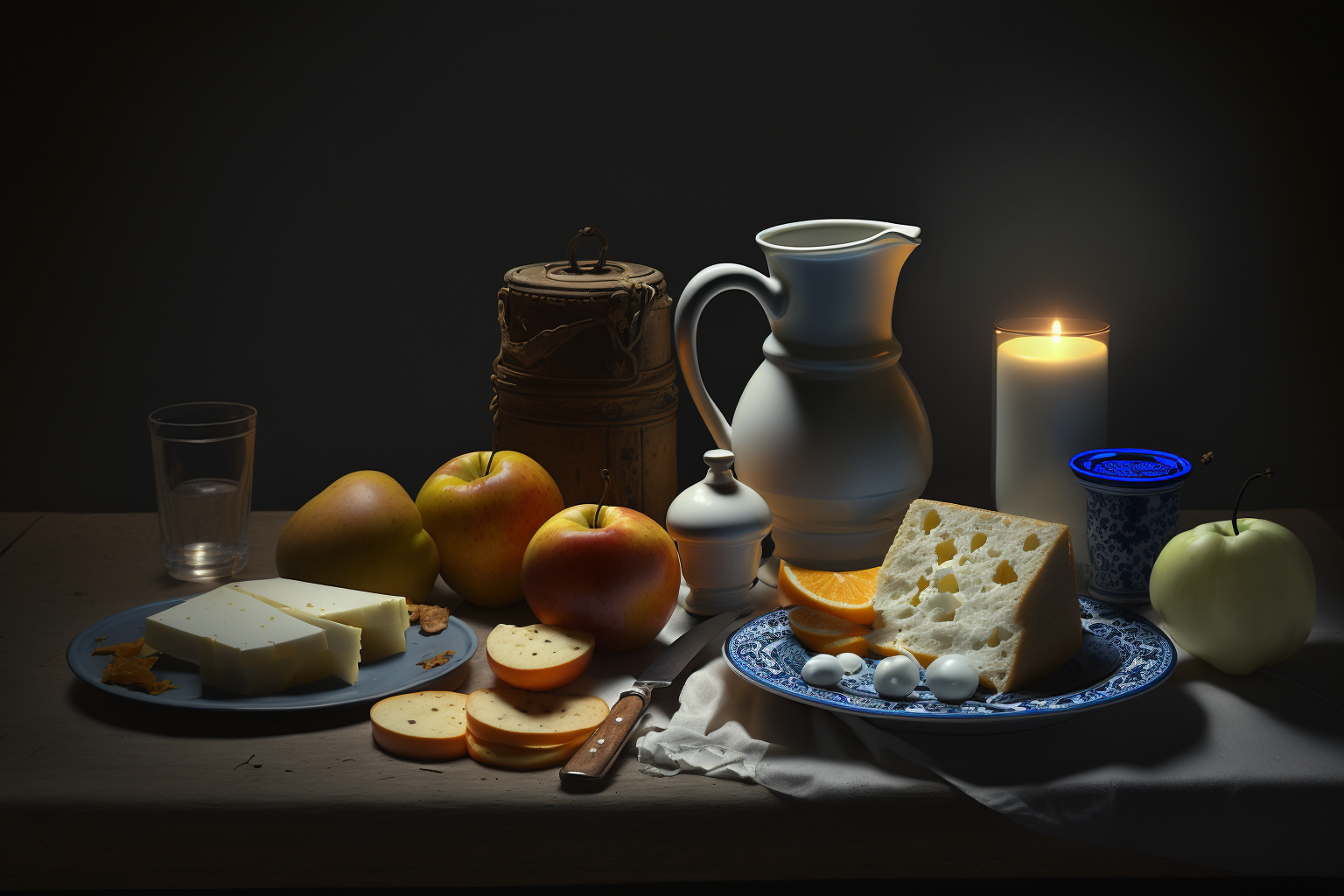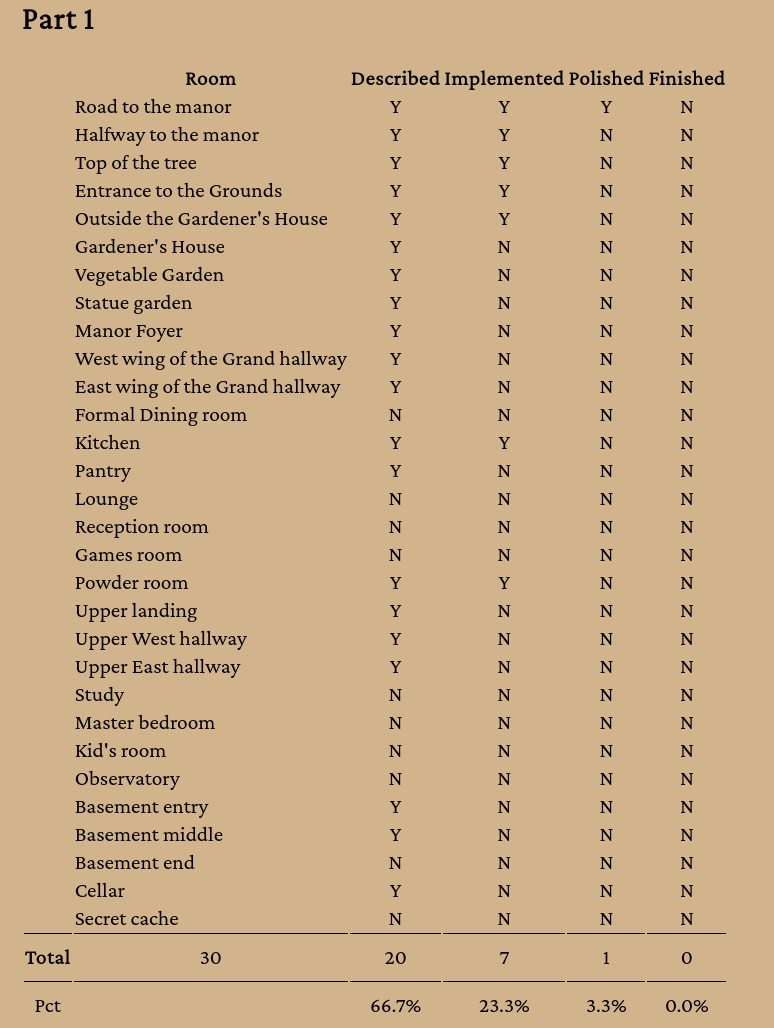The Creative Process #8 - Convergence and Divergence
Branching out and trimming down.
This month I was somewhat aware of a conversation in the universe, applicable to me, and arguably not started by me. This could be some incredible synchronicity, or maybe Baader-Meinhof Phenomenon aka the Frequency illusion - something you recently learned about now appears to be everywhere. But in any case, there were some good points made and I feel like I was paying attention for once.
Subscribe for free to receive monthly posts about my work.
Convergence and divergence

There are two interrelated concepts in creativity and thinking called "convergence" and "divergence". There's no great mystery to them - divergence means to explore and generate ideas, and convergence means to solidify your thinking and produce a solution. In reinforcement learning this is the concept of "explore vs exploit".
I feel that fundamentally I am great at divergent thinking. I have no trouble coming up with new ideas, new projects, new angles. The blank page rarely scares me. I have understood myself to be a polymath ever since I was a teenager, with interests and skills in mathematics, writing, programming, and art.
I know people who are good at a thing and keep pulling that lever. Ask them to take one step left or right, and they get grumpy. But in recent years the kicker for me has been: they get results.
The great mystery, the great obsession I've had in recent years is why I don't seem to get the success I feel like I'm capable of? Ultra-obviously with the luminosity of a megawatt, I slip into divergence mode far too easily, and convergence mode far too weakly. I can do both, but naturally I lean towards divergence. I’d rather brainstorm than implement a thing that works and is just good enough.
I mean, creating is fun when you don't have to produce anything. Moreover, it's tough for people to criticise the results when you don't make anything.
So all of this wasn't so much a realization for me, but a vocabulary to identify problems. I came across the terms in finishing the audiobook for Building a Second Brain, where I promptly ignored much of what he was teaching in that chapter in order to revise the terms I had for my creative life.
All this breathing in,
Never breathing out.
- Fair, by Ben Folds Five
Examples from my kids
There were two funny examples from my kids this month of failing to balance this dichotomy of convergence and divergence.
My daughter — newly five years old omigosh — got it into her head that she was going to put on a theatre production. She had been so firm on it, that as far as I knew, she had forced her grandparents into visiting on the Sunday through sheer force of will. Turns out there was some family admin, but nevertheless...
My daughter talked about this for days and got it all ready. Independently as a gag, I had printed her some fake money with 10 minutes of photoshop to put her face on a bill she had drawn with pen. This formed the basis of her production. She organized ticketing, seating, a stage, and individual elaborate snack plates for everyone. She checked if people could have peanuts. She had a selection of milk, juice and water. She had even cleared some space in her playroom for the execution of this plan.

We all got together and got ready for the show. What was the show named? Nevermind. Was she the star? Maybe, maybe not. Her stuffed toys were accompanying her on stage.
The first teddy was going to do a dance. It got flipped into the air. We cheered and clapped appropriately. Next act, we cried. A stuffed Bluey doll then took its place. And got flipped in the air. Over and over, the same idea. We politely asked for something else, and in her self-consciousness she stuck to the same plan and then ended up going a little crazy and falling off the cushion stage, bruising only her ego.
Fantastic divergent thinking in the preparation of the secondary features. Not so much for the main event.
My son turned six months old, and learned the crowd-pleasing trick of clapping. Very advanced, you see. He's not supposed to do that until he's nine months old. He's also figured out how to say "Da-dad-dad-dad...", dance with his arms like an inflatable dancer, and even "show off his muscles" on the rare occasion.
I am intensely proud and fascinated. Except at 2am when we've had a week of fractally-shattered sleeps, and he's smiling at me in the dark and clapping, I having taken the reins at trying to get him to sleep after my wife can't handle half an hour of "Dad-dad-dad-dad" without a single solitary "mum".
Great work, little dude, and feel free to exploit these things to charm your daycare carers, but read the room!
I'll give him a pass on divergent thinking since he's still working things out, but fixation on convergent thinking can only get you so far.
Accountability
It's been a little over six months since I started this newsletter, coinciding with attempting to restart my efforts on my interactive fiction game Hand Me Down. I've been focussed with finishing this game. I have pages and pages of ideas, and I need to execute on them and create something. Ideally I'd create something and enter it into a competition and do okay.
Looking back over my efforts (and you'll see it in the past newsletters), my efforts have waxed and waned. Admittedly, we had a baby in one of those months, but I felt like the game was ever-threatening to float out of my reach, like a loose balloon. Also admittedly, I can probably fake the impression of progress in these newsletters by stage-managing my thoughts, or careful omission of embarrassing truths.

I had great success in talking through my plans with another IF writer, and I felt that I might solve this problem of progress by enlisting someone else. I don't know where I heard the term, but I wanted an "accountability partner", someone not invested in my project, but willing to keep me on the straight-and-narrow and support my efforts. My first choice was good friend to the newsletter and fellow creative Mike from Armiger Games. I felt like he knew my ways of working, and was unafraid to call a spade a spade and perhaps hit me with it if need be.
I organized a coffee with him and spelled it all out. It turned out great. Mike was incredibly supportive, task-focussed and gave me insight into how I was thinking. For example, in my designs Hand Me Down has three acts: a treasure hunt, an escape room and a memoriam. I have a lot of ideas for the first two, and can discuss them at length. I've been primarily working on the first act, but have a bit of code for the second. The third act I had a bit of a framework, and some ideas. But no execution. All divergence, no convergence.
Mike reflected back to me what he was hearing, and that I had a deep desire to finish the project. So why not think about chopping off the third act? And maybe the second? I had been so focussed on the ideas, and how to make them "work together" that I hadn't really wondered if I needed them all.
In preparing for the meeting I had written some a project brief and some notes (and forgot to bring them to the meeting). Since the focus was on improving progress, I actually sat down to figure out what that was. In Act I I had the layout more-or-less already in place, but with temporary rooms with no descriptions. Of the 28 rooms, I had:
- 13 “described” (you could walk in the room and it wouldn’t say “TODO”);
- 6 "implemented" (added in all the scenery objects and things I might want there);
- 1 “polished” (added in descriptions or scenery objects to make the world feel vivid)
- No rooms truly finished in terms of not needing any more work for publication.
I took this idea from a West of Loathing post-mortem I watched last year.
Seeing that in one third of the game I was less than one half of the way to the most basic concept of completion... well I can do the maths.
In the meeting we sketched out a framework for success, which in immediate terms meant that by the end of the month I wanted to have done basic descriptions of every room in Act I. I've been making steady progress on that, and have been only slightly surprised at the pace and shortness of the end of February. I'll get there, though.
This trivial exercise got me to ensure that I actually had what I thought I had. Turns out some of the rooms weren't even connected properly, or were in the wrong location, or needed to be more locations. With some quick work I fixed that.
Here is my current personal accountability spreadsheet:

I have a similar plan for NPCs - there should be 4 of them: one is already basically complete; another is half done; a third is started but not incredibly hard to do; and the last is potentially catastrophically hard to implement. Trust me, I'm rethinking my NPCs as well.
Objects are the last piece in the puzzle, literally, because they are the puzzles in the first act. Auditing them will be much more complex. But I need everything else squared away first.
We'll meet up in early March to discuss my progress and plans. The first meeting yielded totally awesome results. No idea why I didn't do this earlier.
Coincidentally I had also been watching the Greek philosopher and Emacs enthusiast Protesilaos Stavrou (Prot), who does occasional walks through the countryside, extemporaneously discussing some topic from a philosopher’s perspective. This month he talked about Productivity, honest and accountability structures, which frankly was a bit eerie in its relevance.
In short, productivity is anchored in the person who needs to be productive. Abstracting it out to be applicable to everyone is silly because if you want to be productive, it has to apply to you. Honest reflection, either by yourself or via others, can solidify this effort, and having systems in place to enable or encourage honest reflection can close the loop and help your productivity.
In the last six months I’ve experimented with a few systems accidentally in this vein. Accountability chats with Mike, emails to interactive fiction gurus, daily reflections, microblogging… heck, even this newsletter. While I wasn’t struck with a profound lightning bolt of philosophy by Prot’s video, it again gave me vocabulary and angles to sharpen my approaches.
AI creativity
I've been using AI creativity tools a little more this month. I feel slightly nauseous with the ethics, but I'm currently only making it for myself, so I'm only ignoring ethics for entertainment, not capitalism. That’s okay, right?
I don't feel like the world has come to a better consensus on the philosophy of these technologies. However there was a fantastic framing by AI creativity researcher Max Kreminiski: the allure and power of these generative AI technologies is that it cuts down on the "gulf of execution", the gap between having an idea and realizing it as a piece of art. Convergence, to keep the buzzword going. The trouble, he explains, is that it does close to nothing to enable you to traverse the "gulf of evaluation", the difference between seeing what you've done and understanding what you've done. This hinders both convergence and divergence in that you don't know why a piece of AI art is dull or missing that creative frisson, even though you might have noticed that the models have too many fingers.
Again, an idea that seems obvious, but I don't feel like people were articulating it.
This harks back to the old apocryphal story of the pottery class. Half of the class was told they would be judged on the best 10% of work they submitted, no matter how much, and the other half just had to submit one great work. The first half churned out pots after pot, learning what worked and what didn't. Iterating, refining, learning. The other half just sat and thought about the idea, only eventually committing to a work which ended up only being as good as your initial planning.

A lot of people are hoping that AI like ChatGPT will do all the work for them. Give it some lazy parameters and hopefully the AI spins it into gold. Spoiler alert: it can't. I and other people have found a lot more success in AI generation as a scratch pad. Use it as a tool for iteration. Never accept what it gives you wholesale. Ask it for three suggestions, and then force yourself to come up with a fourth that is different and better than those three.
Unfortunately I am a decent writer and a terrible illustrator, so I can only really stand by this philosophy for writing with ChatGPT as a buddy, but not for Midjourney. I am generating far more Midjourney art, to discard most of it. Hopefully these are baby steps in crossing my gulf of evaluation for visual art.
We the successors
On a more personal and philosophical level for convergence and divergence, I had the news of my maths honours supervisor Barry Jones had passed away. During my university years I was exploring who I was and what I thought, as well as thoroughly ignoring who I was and exactly what I was thinking. I was an idiot. All divergence, no convergence.
Barry was instrumental in getting me to direct myself away from polymath towards just math (well, maths in Australia). At least until I graduated.
In amidst the rest of this month, I got thinking about myself during my uni days, who I am now and how I do things. I'm hopefully understanding myself a little better nowadays. Converging from someone with potential to someone trying to meet their potential. A Dad, a husband, a researcher, a creative. I don't expect to converge into one perfect being, but just iterate and improve the model as much as I can, while I can.
It's the nature of all creative works to explode outwards in new energy and exploration, to be iterated upon and then, eventually, completed. We live, we die. If we do a good job, we make a mark on those that follow us.
If you enjoyed this post, feel free to share it. It’s free and public.